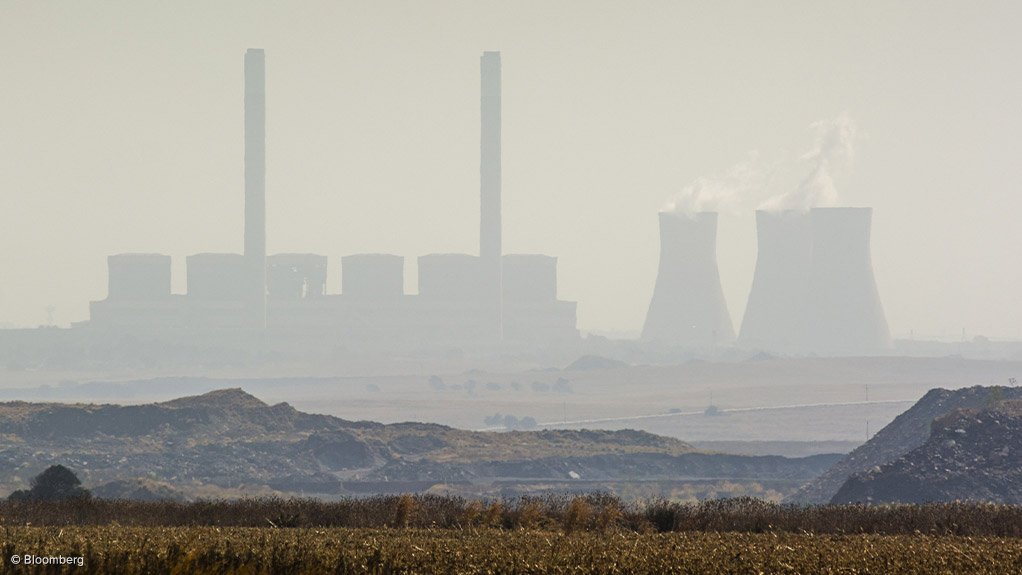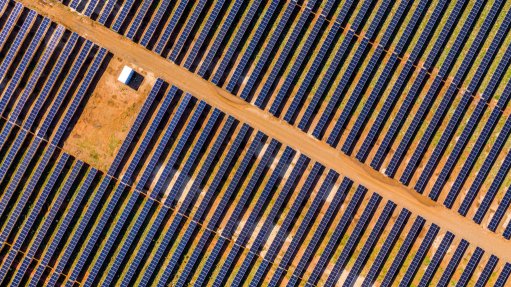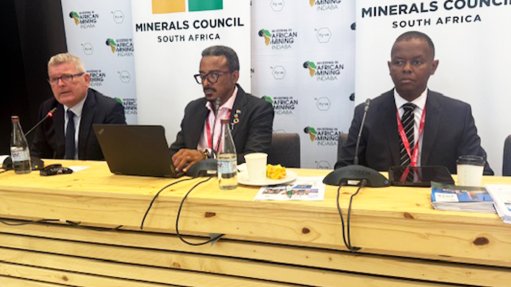Good progress on air quality frameworks, but implementation needed
South Africa has a robust framework to manage air quality, as well as regulations and standards that serve as a yardstick for measuring and monitoring harmful emissions.
The country also follows World Meteorological Organisation (WMO) guidelines and approaches, but national circumstances mean that air quality is not at the level that the WMO recommends, said Department of Forestry, Fisheries and the Environment (DFFE) national air quality officer Dr Patience Gwaze.
"There has been lots of work to put in place air quality frameworks and standards in all three spheres of government. The national air quality framework is currently being reviewed and should be published next year.
"However, while there are air quality management plans in place, such as for the petrochemicals sector in Durban South and multiple programmes in place in municipalities, there have not been significant emissions reductions from these programmes.
"Several plans that stipulate the levels of air quality desired are not achieving these levels or the improvements required. These can, however, serve as a starting point from which we can review how better to implement air quality management to ensure we provide an environment that is not harmful to the health or wellbeing of citizens in South Africa," she said.
She was addressing more than 300 national, provincial and municipal government officials and air quality officers during the opening session of the eighteenth Air Quality Governance Lekgotla on September 2.
Nearly all the metropolitan areas and provinces, and many municipalities, had air quality management plans in place, although there was still a significant challenge at local municipalities, Gwaze said.
The Vaal Triangle, the Highveld and the Waterberg areas were inland hotspots, while Saldanha Bay, south Durban and the Richards Bay coastal areas were coastal hotspots that needed attention. The coastal areas were some of the new areas the department was working on with municipalities, she noted.
"We use the priority areas management tool to identify poor air quality hotspots. The Vaal Triangle, the Highveld and the Waterberg areas require significant intervention to improve the quality of air. Plans are in place to address the challenges in these hotspots.
"The Highveld priority area's second iteration of its plan is currently open for public comment," said Gwaze.
Further, regulations for priority areas were promulgated at the end of August and this had improved the inter-governmental coordinating structure's ability to intervene with targeted emissions reduction programmes to drive implementation of the air quality priority area plans, she added.
"The plan is to extend the priority areas to include the West Rand, the City of Johannesburg, the Bojanala municipality and the City of Tshwane. The air quality in these areas is compromised, according to readings from our monitoring stations.
"The aim of the extension of the areas is to improve our ability to ensure we can monitor and improve air quality in our most densely populated areas and is an acknowledgement that the air quality that our citizens are exposed in these areas is not compliant with regulations," Gwaze said.
There were more than 2 500 certified emissions licence holders. However, the emphasis in this system was on control and there was a lack of prosecution of offenders, she highlighted.
"The court victory civil society won in the Highveld is not only about compelling government to manage air quality better but is also a recognition that we have a constitutional mandate and must provide a clean environment for all living in South Africa," she emphasised.
Further, based on annual measures of particulate matter and sulphur oxides emissions, the country has regressed over the past four years.
"The priority air quality intervention areas were declared owing to the consistent non-compliance of the air quality. This also provides the reason to intervene with air quality regulations and enforcement of them to bring the areas into compliance," she said.
The provinces that are faring the worst in terms of air quality are Free State, Gauteng, Limpopo, Mpumalanga and North West.
Meanwhile, industries submitted emissions information to establish an emissions inventory for the country. This shows that Mpumalanga, Limpopo and the Free State are the provinces with the highest contribution of emissions by industries.
The inventory not only covered emissions but also the pollutants introduced into the atmosphere by different industries.
"With this information, we not only know where the emissions are coming from but also how the different sectors are contributing to air pollution. This gives us the knowledge to focus on these sectors to address their challenges.
"The department has a network of partnerships to support air quality management, including academic and research and development partnerships, private-sector partnerships, training and capacity building partnerships, and international partnerships, as well as partnerships with other State organisations, such as the Industrial Development Corporation (IDC)."
From international examples, including from air quality improvement partner country China, continuous improvement and advancements were needed to reduce emissions and improve air quality over and above the minimum standards, Gwaze said.
"Some of the possible considerations to reduce emissions include a surcharge or fee for polluters, incentives for companies and industries to reduce emissions, and how we can support organisations, such as the Department of Trade, Industry and Competition and the IDC, to help companies to phase out old technologies by potentially tapping into funding mechanisms."
Air pollution is one of the leading environmental health risks. There are multiple agendas supporting sustainable development and the air quality management sector can leverage these developments to reduce emissions and pollution.
"It is our obligation to act swiftly to improve the air quality that our people are exposed to."
Meanwhile, in his opening remarks, DFFE climate change and air quality deputy director-general Maesela Kekana said South Africa's air quality management structures needed to improve their ability to effectively monitor compliance and needed to undertake enforcement actions where necessary.
The regulations for the enforcement of priority areas air quality management plans came into effect on August 26.
"The obligations prescribed by these regulations are not novel emission-control mandates but aim to enforce air quality management plans and enhance coordination of existing regulatory tools and requirements to achieve the successful implementation of air quality management plans for the benefit of the communities within the priority areas.
"The department will be hosting a dedicated Priority Area Summit during [October] for government to assess and establish readiness for the effective implementation of these regulations," he noted.
Article Enquiry
Email Article
Save Article
Feedback
To advertise email advertising@creamermedia.co.za or click here
Comments
Press Office
Announcements
What's On
Subscribe to improve your user experience...
Option 1 (equivalent of R125 a month):
Receive a weekly copy of Creamer Media's Engineering News & Mining Weekly magazine
(print copy for those in South Africa and e-magazine for those outside of South Africa)
Receive daily email newsletters
Access to full search results
Access archive of magazine back copies
Access to Projects in Progress
Access to ONE Research Report of your choice in PDF format
Option 2 (equivalent of R375 a month):
All benefits from Option 1
PLUS
Access to Creamer Media's Research Channel Africa for ALL Research Reports, in PDF format, on various industrial and mining sectors
including Electricity; Water; Energy Transition; Hydrogen; Roads, Rail and Ports; Coal; Gold; Platinum; Battery Metals; etc.
Already a subscriber?
Forgotten your password?
Receive weekly copy of Creamer Media's Engineering News & Mining Weekly magazine (print copy for those in South Africa and e-magazine for those outside of South Africa)
➕
Recieve daily email newsletters
➕
Access to full search results
➕
Access archive of magazine back copies
➕
Access to Projects in Progress
➕
Access to ONE Research Report of your choice in PDF format
RESEARCH CHANNEL AFRICA
R4500 (equivalent of R375 a month)
SUBSCRIBEAll benefits from Option 1
➕
Access to Creamer Media's Research Channel Africa for ALL Research Reports on various industrial and mining sectors, in PDF format, including on:
Electricity
➕
Water
➕
Energy Transition
➕
Hydrogen
➕
Roads, Rail and Ports
➕
Coal
➕
Gold
➕
Platinum
➕
Battery Metals
➕
etc.
Receive all benefits from Option 1 or Option 2 delivered to numerous people at your company
➕
Multiple User names and Passwords for simultaneous log-ins
➕
Intranet integration access to all in your organisation





















